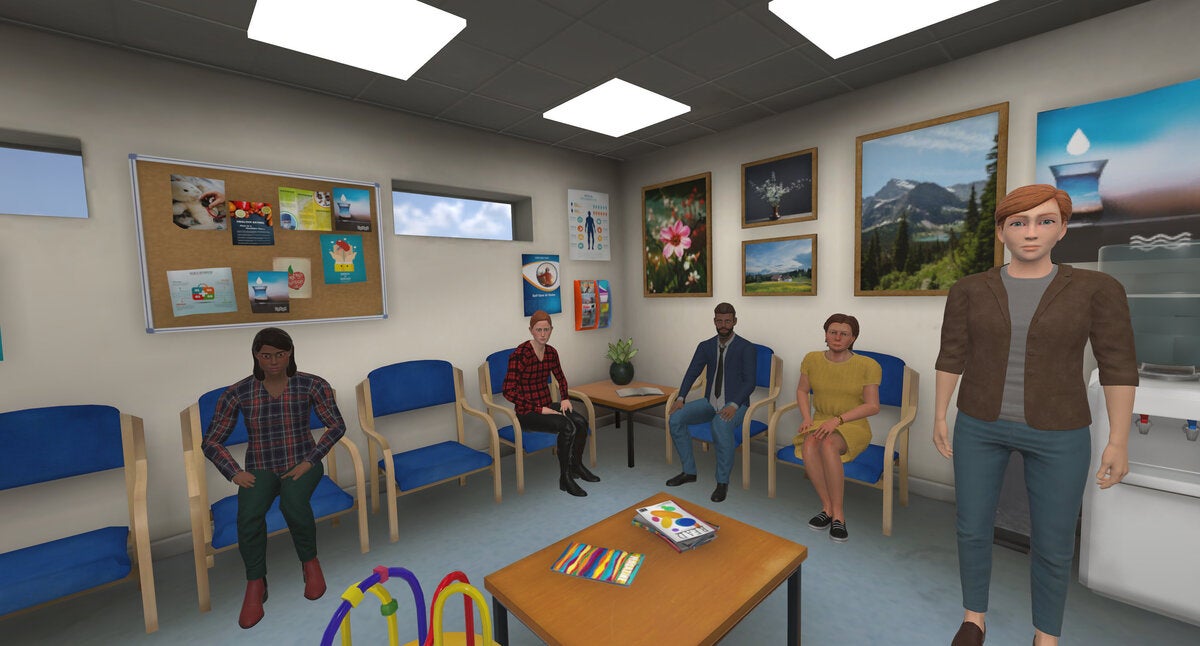Once synonymous with gaming, virtual reality (VR) has made inroads in recent years in a wide range of applications — particularly in healthcare, where the ability to create immersive, virtual worlds has led to some remarkable advantages for patient care.
Daniel Freeman, a professor of Clinical Psychology at the University of Oxford, has conducted research into the use of VR as a treatment tool for a range of mental health conditions, including paranoia- and anxiety-related disorders. (His work has involved investigating the use of VR therapy for overcoming fear of heights and of needles, for instance.)
Freeman founded OxfordVR, a spinout firm (recently merged with US-based BehaVR), which is responsible for gameChange, a VR-based treatment for severe psychosis-related agoraphobia that’s currently in trials with health services in the UK and US. The gameChange treatment involves the use of VR by house-bound patients to simulate everyday situations such as a café, pub, or bus trip. It was used in a trial involving hundreds of patients — thought to be the largest randomized, controlled trial involving VR mental health treatment so far — with the results published in The Lancet indicating that the automated VR therapy led to significant reductions in distress related to everyday situations.
Oxford University/Oxford VR
Daniel Freeman, professor of Clinical Psychology at the University of Oxford.
In a recent conversation with Computerworld, Freeman discussed how VR devices and applications can be used to provide effective treatment to patients at a time when health services are struggling to meet demand. In certain cases, this includes the ability to automate healthcare delivery with the provision of VR headsets for patient care – an increasingly realistic prospect for providers due to recent advances in the technology and lower costs.
This interview has been edited for length and clarity.
How can VR be used as a tool for mental health or mental illness treatment? What has your research shown? “There are two key aspects of VR that could be hugely beneficial for mental health care. The first point is that VR is inherently a very therapeutic medium. The fact that people know it’s not real enables them greater psychological flexibility; they can make new learning that’s beneficial for their mental health. Rather than the awareness that it’s not real causing a problem, or dispelling the benefits, this is actually really useful in psychological therapy. Many of the people we see are very caught up in their thoughts, and it’s actually a medium in which one can get a bit more distance from [their inner monologue] and think anew, and learn anew. So it’s inherently very therapeutic.
“The second key point is that there’s potential to automate the provision of psychological therapy in VR, and thereby help close this large gap between the number of people who need help and the current service provision. So I…
2023-08-19 12:00:03
Link from www.computerworld.com rnrn
